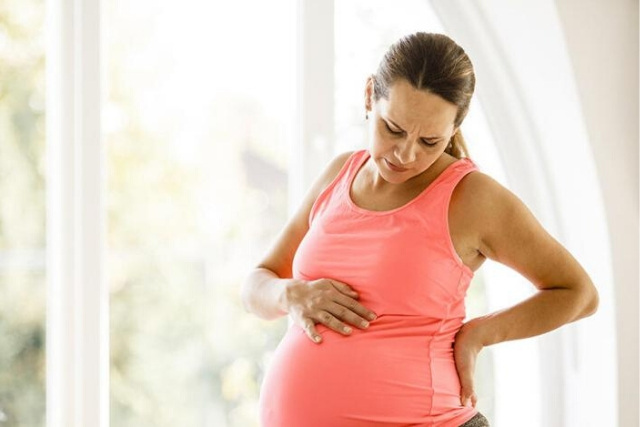On top of morning sickness, stretch marks, and swollen feet, pregnant women have another thing to stress about: gallstones. Despite the increased risk, there are steps you can take to help prevent this unwanted side effect of pregnancy. Gallstones can lead to pain and other symptoms, and if left untreated, they can cause your gallbladder to become infected or rupture.
In this article:
Effect of Pregnancy on Gallbladder Functioning
Important Symptoms to Watch for
How to Diagnose Your Issue?
When Should You Go and See a Doctor?
Treatment Options
All You Need to Know About Gallbladder Pain During Pregnancy
Effect of Pregnancy on Gallbladder Functioning
The gallbladder stores bile until your body needs it, and then releases it into your small intestine, where it aids in the digestion of dietary fat and fat-soluble vitamins. If the substances that make up your bile become imbalanced — there is too much cholesterol or bilirubin and not enough bile salts, for instance— hardened gallstones could form in your gallbladder.
Pregnant women are at increased risk for gallstones because of their increased estrogen levels that can increase bile in the gallbladder, as well as the sudden weight gain during pregnancy and rapid weight loss post-birth can increase your chances of getting gallstones.
Important Symptoms to Watch for
Sometimes gallstones don’t cause problems or have symptoms, and they may go away on their own after you deliver your baby. It’s important to tell your doctor if you’re having any of the following symptoms:
- Steady, severe pain in the upper portion of your abdomen, especially after eating a heavy, fatty meal
- Pain in the upper abdomen that radiates into your right shoulder and back
- Abdominal pain that lasts longer than five hours
- Itchy skin
- Nausea and vomiting
- Fever or chills
- Yellowing skin or whites of the eyes (indicators of jaundice)
- Stool that is clay-colored
How to Diagnose Your Issue?
Blood work may not be as useful to figure out the problem due to normal pregnancy changes. Instead, you can do an ultrasound to detect many cases of gallstones during pregnancy.
You may need to get testing done to figure out if your symptoms mean that you are experiencing gallstones, cause severe abdominal pain could also be a sign of round ligament pain or severe cramps (which, while uncomfortable, are actually normal symptoms of being pregnant), or something more serious, such as a ruptured ectopic pregnancy or even appendicitis.
When Should You Go and See a Doctor?
If you experience severe abdominal pain during pregnancy, consult your doctor to ease your concerns and get a diagnosis. Consult your doctor immediately if you have pain so intense you can’t sit or lie down comfortably, or if you’re experiencing a fever with chills or yellowing of the skin or whites of the eyes (jaundice), as these can be symptoms of a serious issue.
Treatment Options
It is more common to manage gallstones in pregnancy with medicine.based on what your doctor recommends, you should take preventive steps to manage your gallstones or go for surgery. It is also often helpful to alter your diet and lifestyle, such as:
- Eat more fiber-rich foods, such as fruits, vegetables and whole grains.
- Avoid saturated fats, such as those found in animal products (like meat and whole milk) and focus on omega-3 fatty acids and unsaturated fats.
- Limit intake of sugar and refined carbohydrates (like in white bread and pasta).
First Trimester
Surgery is generally not recommended in the first trimester except in extreme cases because the risk of miscarriage is higher. There is also a greater risk of birth defects from exposing your baby to the medications needed to perform surgery. If possible, the surgery will be delayed until you have moved into the second trimester or until after you give birth.
Second Trimester
Surgery is safest in the second trimester. It is also the easiest time to do the procedure with laparoscopy as opposed to an open incision, which is more complicated and requires a longer healing time.
Third Trimester
If you’re in your third trimester, it’s possible your doctor will prefer for you to try to wait out the pain rather than have surgery because your growing uterus makes it more complicated to perform surgery using the laparoscopic technique. It is also more likely that you could experience preterm labor in the third trimester. Your doctor may also recommend that you have your gallbladder removed in the postpartum period.
Sources
https://www.ncbi.nlm.nih.gov/pubmed/8592309
https://www.healthline.com/health/pregnancy/gallbladder
